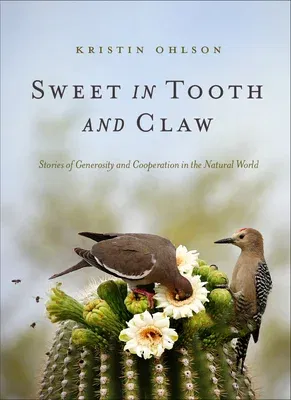What if Nature is more cooperative, and less competitive, than we
think?
A follow-up to Kristin Ohlson's previous book, The Soil Will Save
Us (Rodale 2014), Sweet in Tooth and Claw extends the concept of
cooperation in nature to the life-affirming connections among microbes,
plants, fungi, insects, birds, and animals - including humans--in
ecosystems around the globe.
For centuries, people have debated whether nature is mostly competitive
-- as Darwin theorized and the poet Tennyson described as "red in tooth
and claw"--or innately cooperative, as many ancient and indigenous
peoples believed. In the last 100 or so years, a growing gang of
scientists have studied the mutually beneficial interactions that are
believed to benefit every species on earth. This book is full of stories
of generosity - not competition -- in nature. It is a testament to the
importance of a healthy biodiversity, and dispels the widely accepted
premise of survival of the fittest.
Ohlson tells stories of trees and mushrooms, beavers and bees. There are
chapters on a wide variety of ecosystems and portraits of the people who
learn from them: forests (the work of Suzanne Simard); scientists who
study the interaction of bees and flowers in the Rocky Mountains; the
discovery of bacteria and protozoa in the mid-1600s by Dutch scientist
Antoni von Leeuwenhoek; ranchers, government agency personnel, and
scientists working together to restore wetlands from deserts in
northeastern Nevada; and more. It is a rich and fascinating book full of
amazing stories, sure to change your perspective on the natural world.

